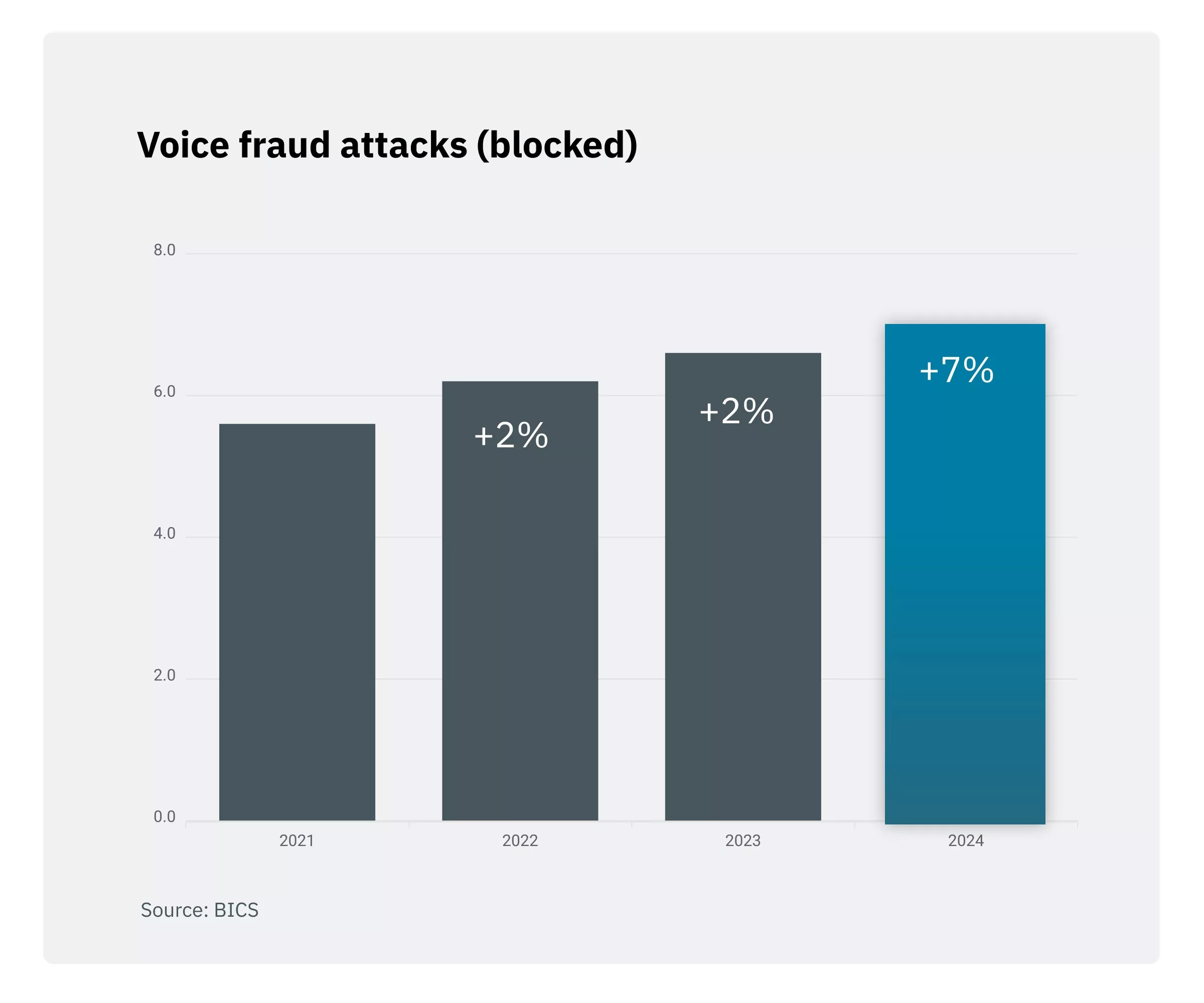The number of voice fraud attacks has grown steadily between 2021 and 2023, reflecting the global trend. However, in Q1 of 2024, there was a sharp increase of 35% compared to Q3 of 2023; if the trend continues, voice fraud will easily be the most dangerous type of fraud for operators and consumers alike.
Interestingly, the spike in voice fraud is no longer fueled by more traditional, outbound traffic fraud. In fact, the rates of outbound traffic fraud, such as IRSF (International Revenue Share Fraud), which once accounted for over are now in decline. This shows that prevention solutions for this type of traffic have become a lot more sophisticated and successful at putting a stop to fraud attacks.
The uptick in voice fraud is instead driven by spam calls, which are notoriously more difficult to filter and block than outbound fraud. MNOs’ focus should be on updating their voice fraud protection solutions to minimize the risk represented by spam calls.












